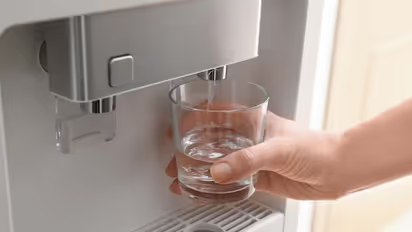Key points to consider before buying a water purifier for your home

Synopsis
Let's look at some important considerations you should make before making a water purifier purchase.
Water purifiers are becoming a vital home appliance. They were formerly considered to be luxury goods and frequently had high price tags. These days, they are more widely available and inexpensively priced, increasing everyone's access to clean water. This change is a reflection of people's increasing concern for the quality of their water and the need to have a trustworthy filtration system at home. Let's examine a few crucial considerations you should make before making a water purifier acquisition.
Water purity
Using a TDS meter, you may test the total dissolved solids (TDS) to determine the water's quality. In general, a TDS level of 50 to 100 ppm is considered appropriate. The necessity for a water purifier may be indicated by readings that are over 100 or below 50. Good TDS levels are those that fall between 150 and 200 ppm; poor TDS levels are those that exceed 200 ppm, and extremely poor TDS levels are those that exceed 400 ppm.
Water purifiers
Your water supply will determine the kind of water filter you should select. An RO (Reverse Osmosis) filter is advised, for instance, if your water comes from a well or borewell, or if you live near the seaside. A UV (ultraviolet) purifier is typically appropriate for water that comes via pipes, such as tankers or municipal water. UV purifiers are suitable for less contaminated water, whilst RO purifiers work better on more contaminated sources.
Water consumption
Select a water purifier based on the requirements of your household. To account for additional use, add 20% to the daily water consumption per person. This will assist in figuring out how big of a water purifier your house needs. Online retailers provide premium water purifiers for as little as Rs 10,000.
Also Read: Perfect Sunday morning breakfast ideas for a delicious and relaxing start
Explore the latest Lifestyle News covering fashion, wellness, travel, Food and Recipes, and more. Stay updated with trending Health News, fitness tips, and expert insights to inspire your daily living. Discover personalized lifestyle trends that keep you stylish and informed. Download the Asianet News Official App from the Android Play Store and iPhone App Store for everything that adds value to your everyday life.